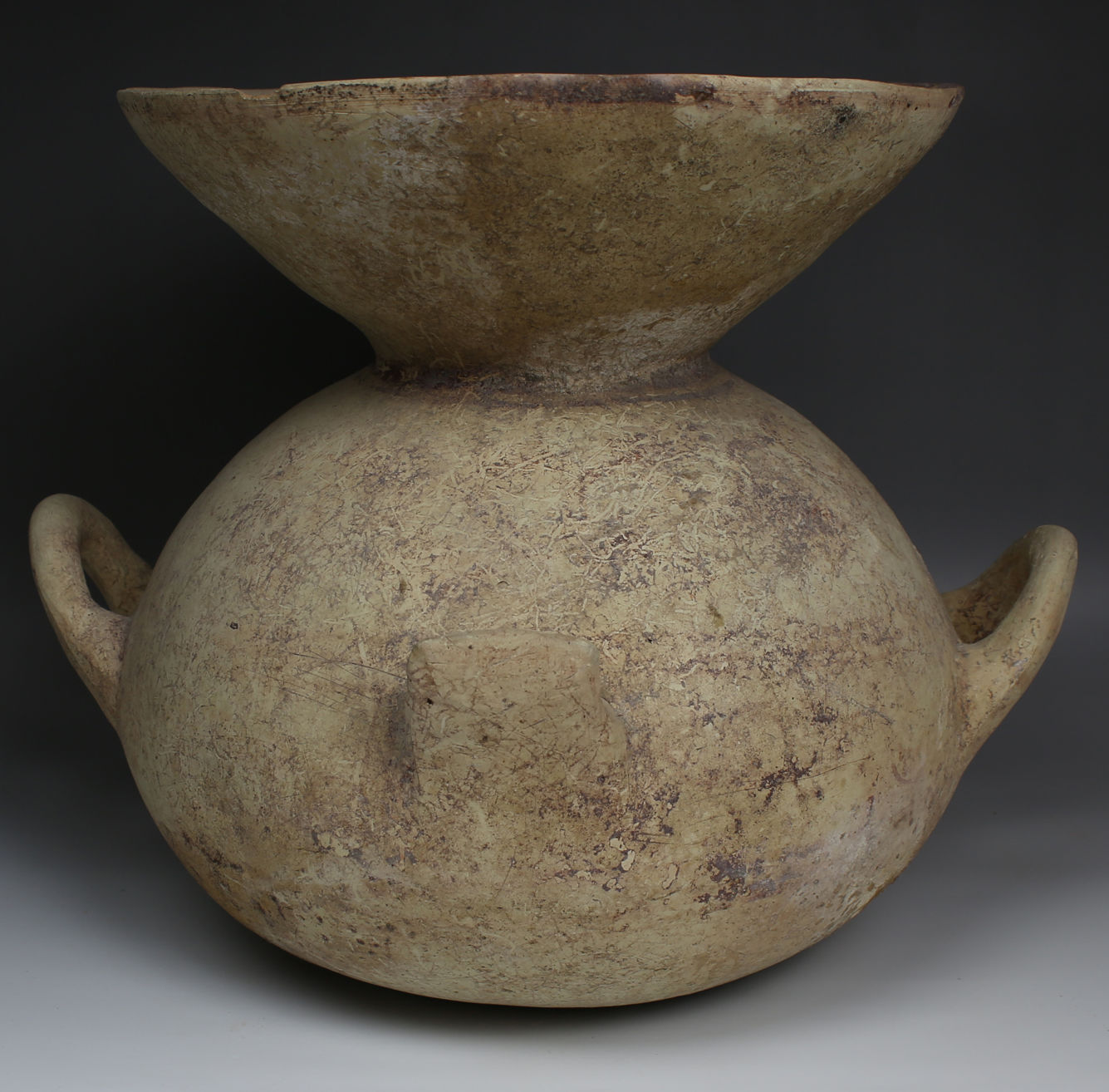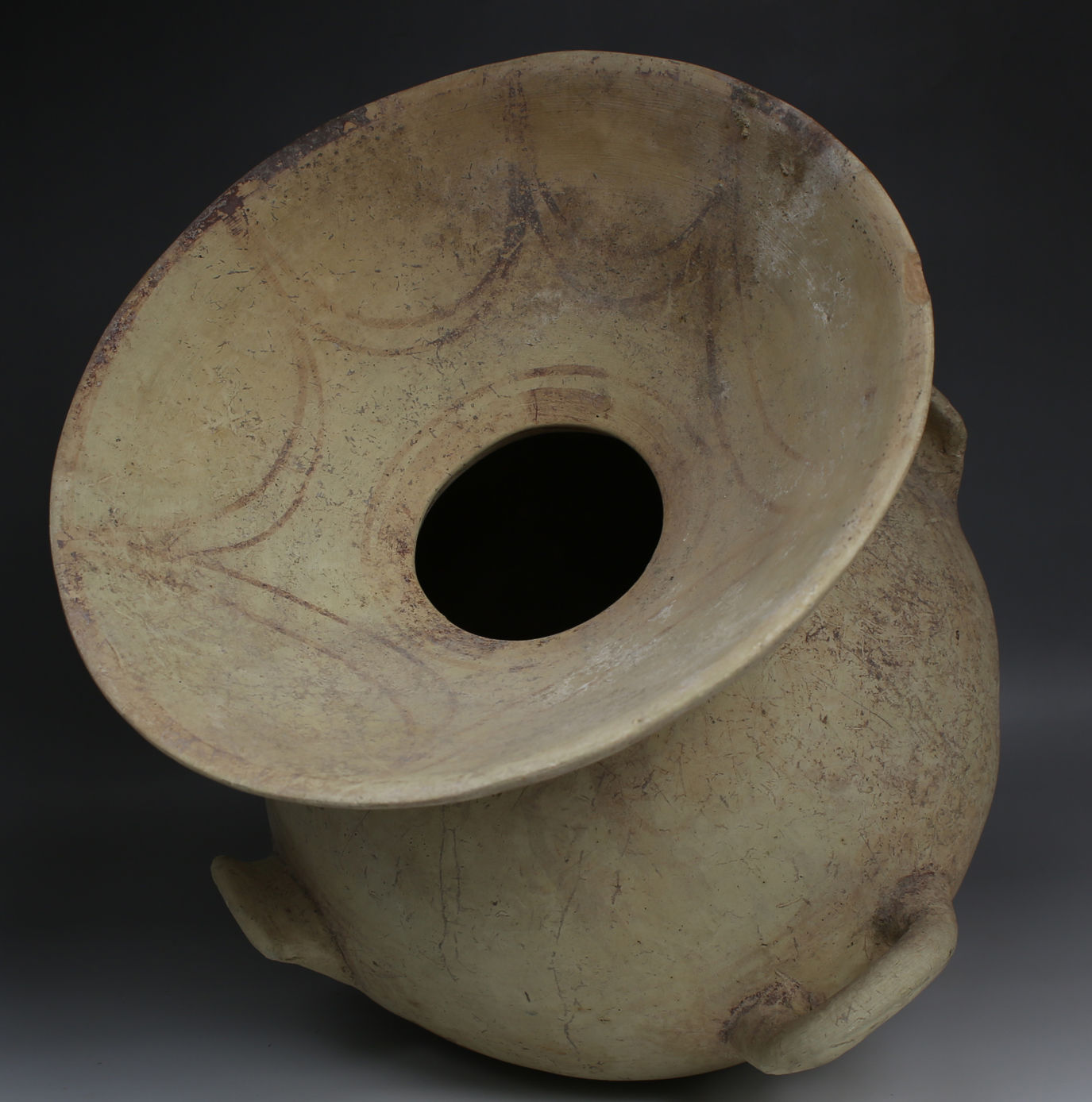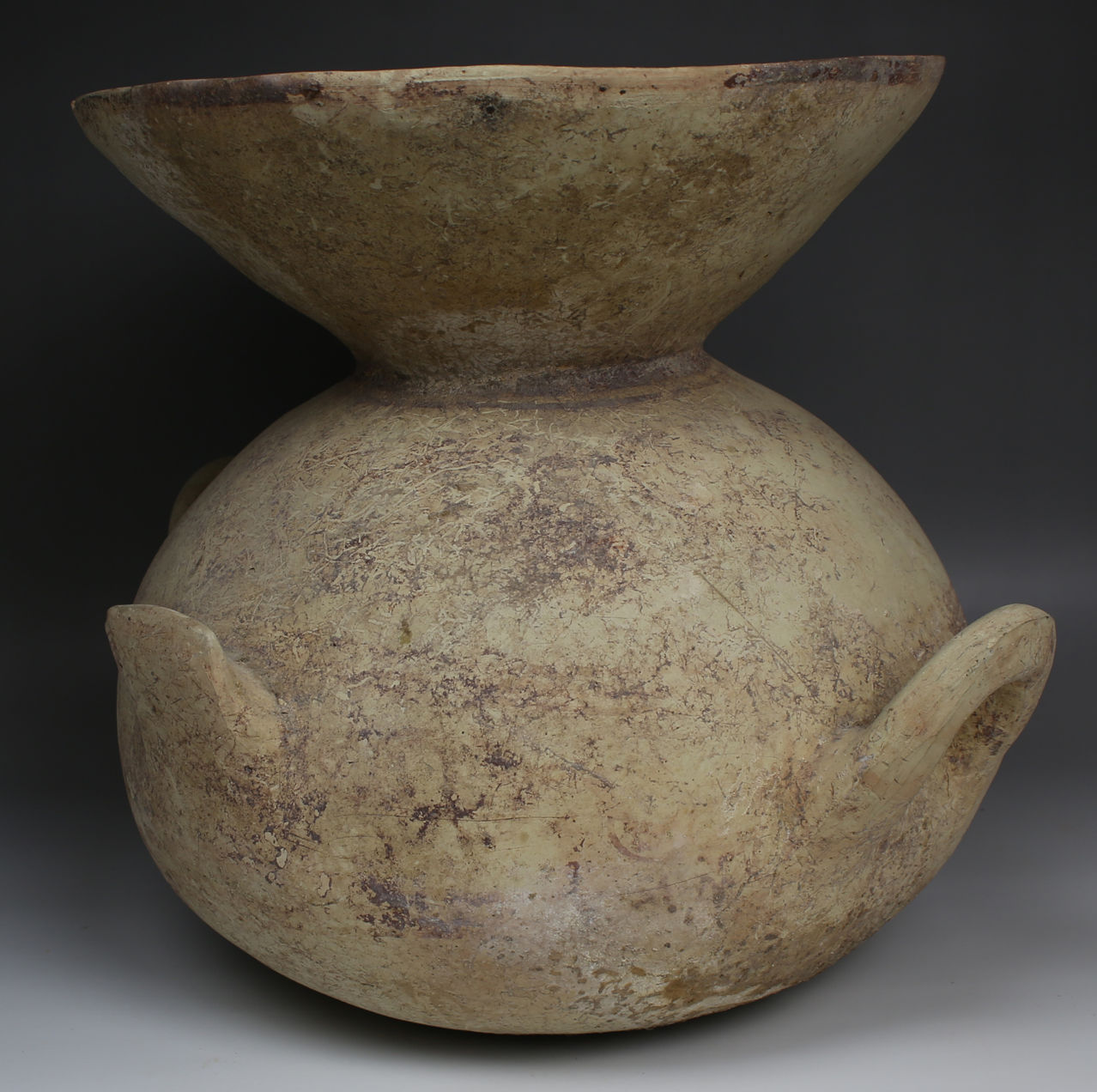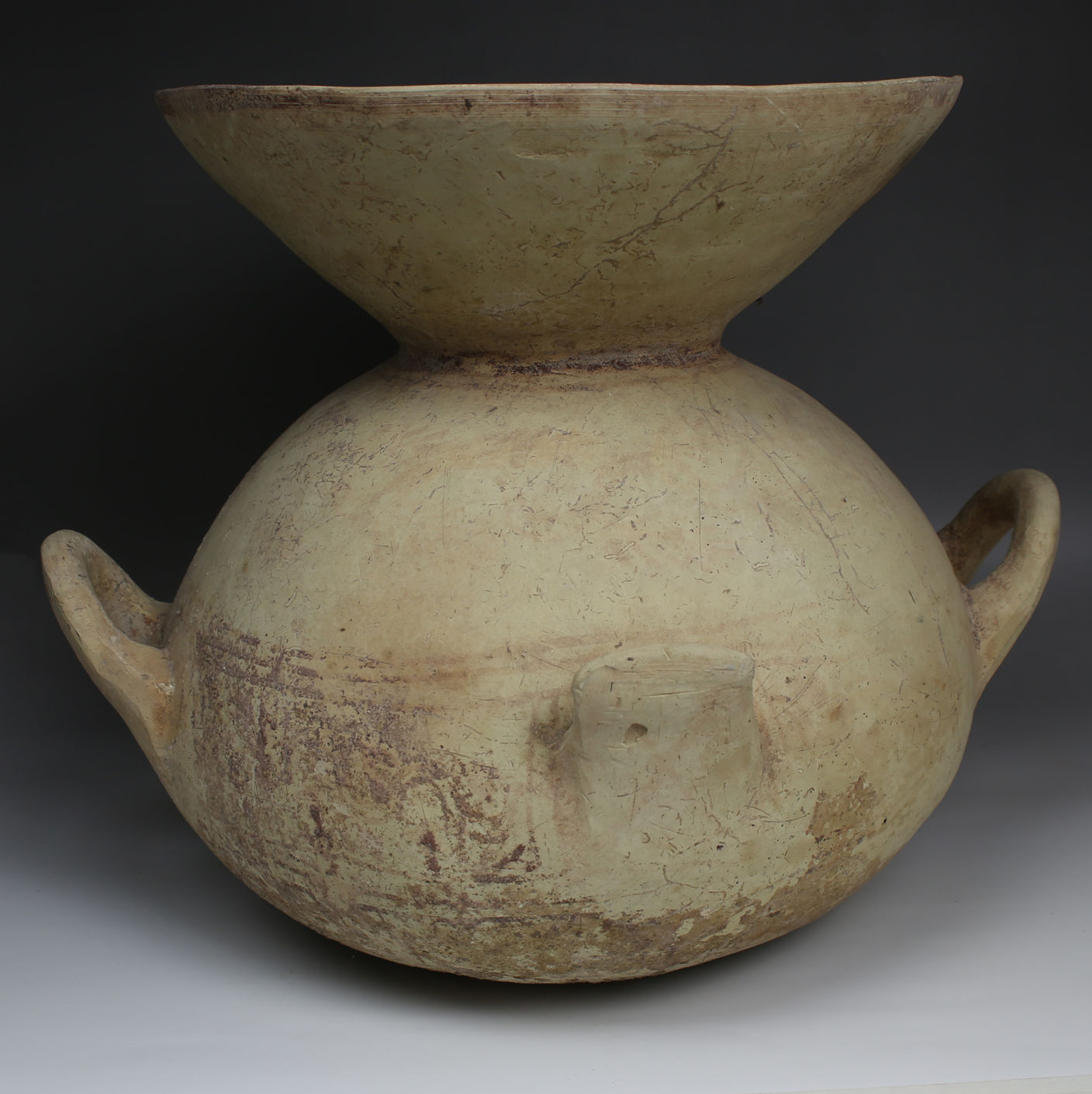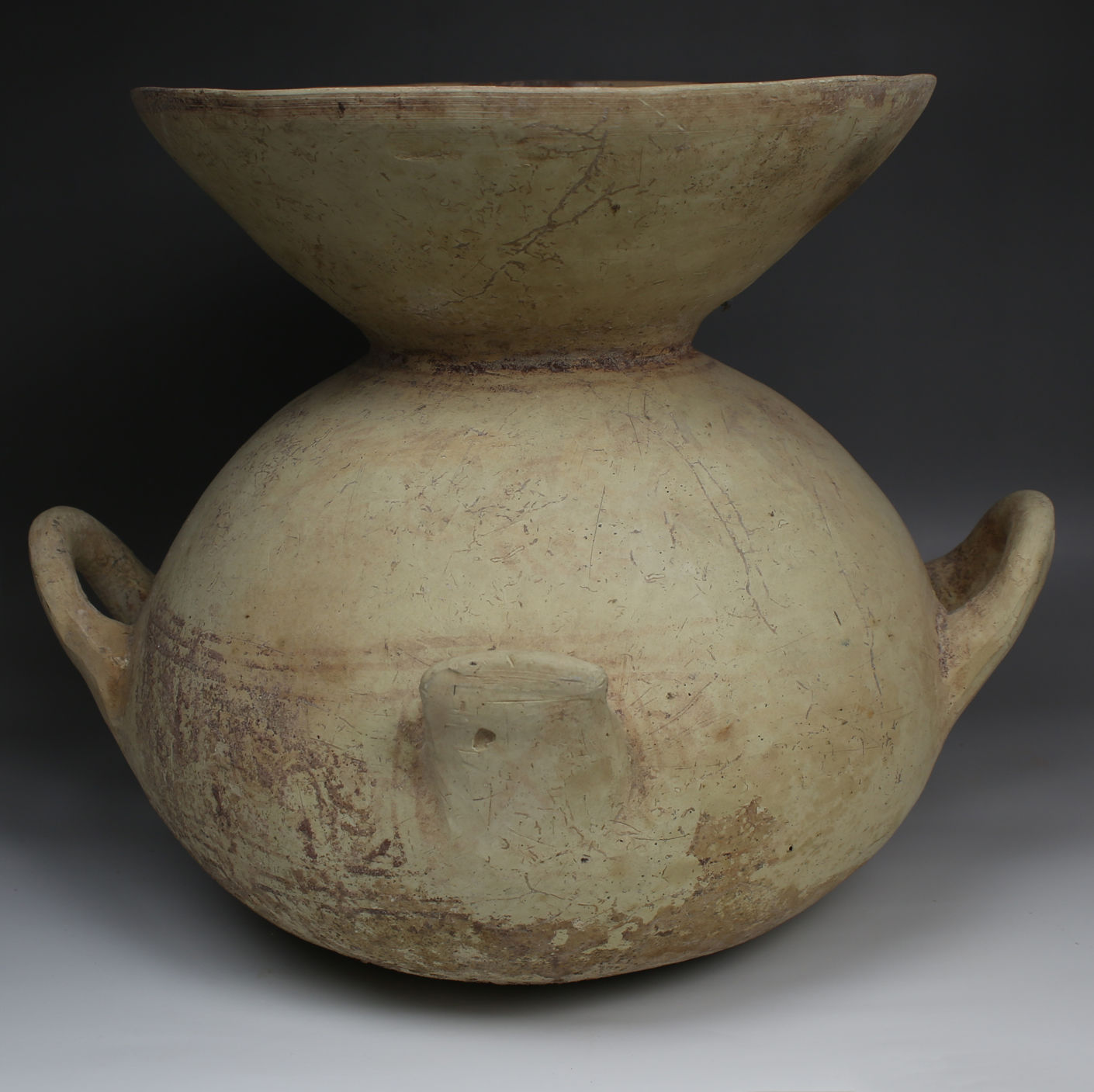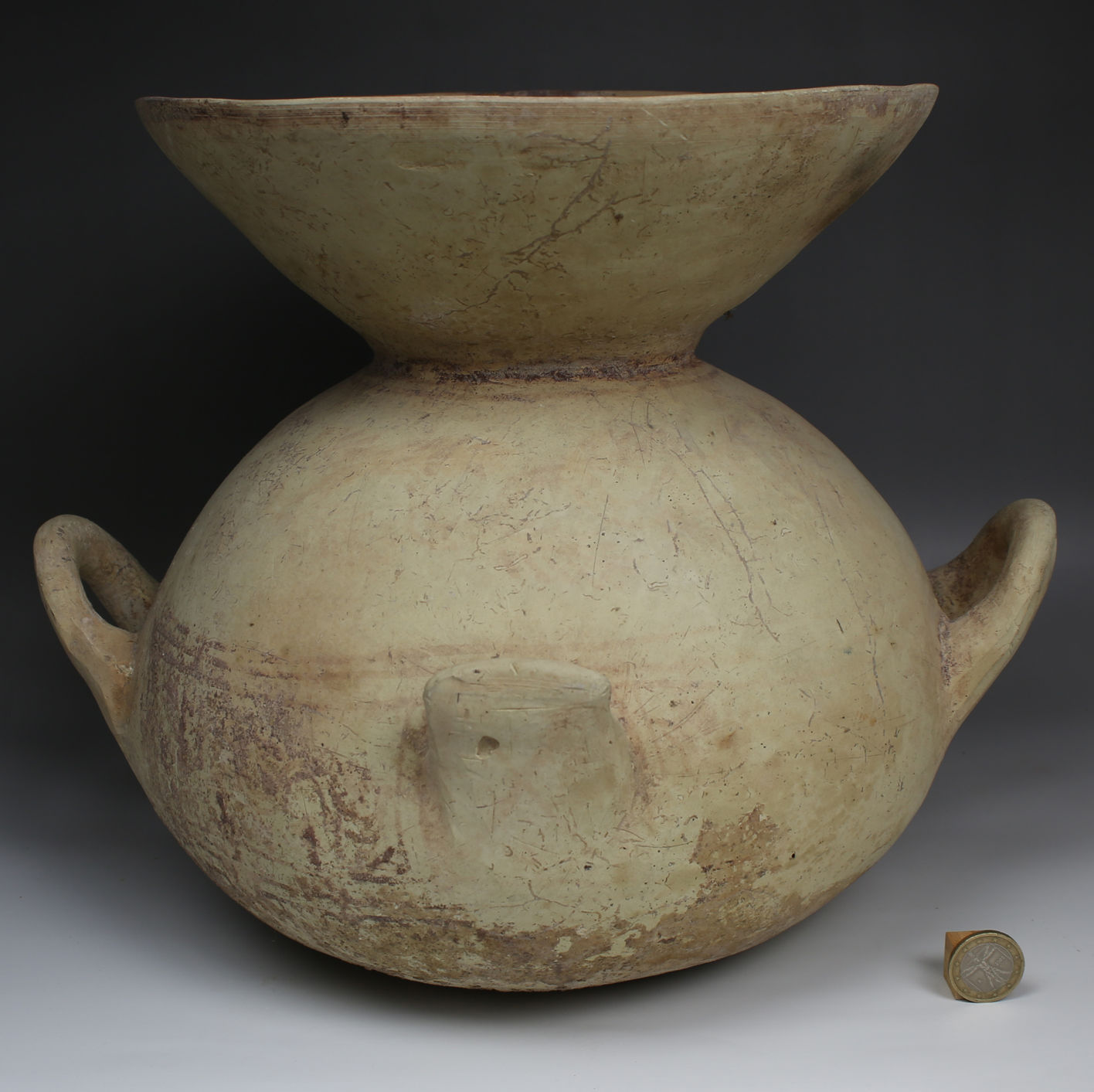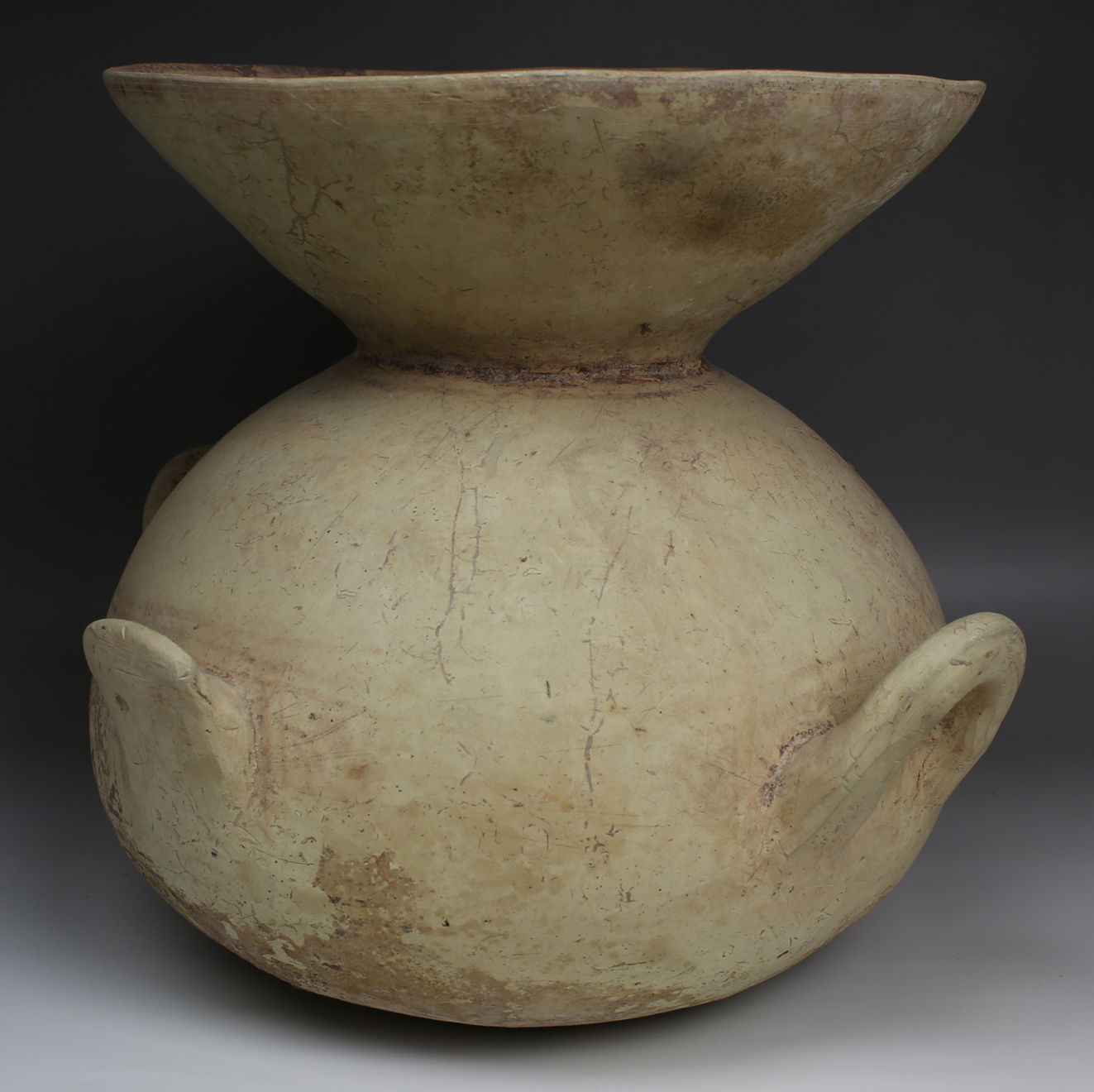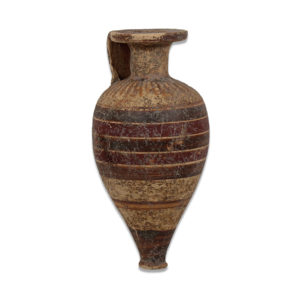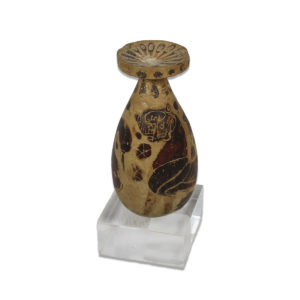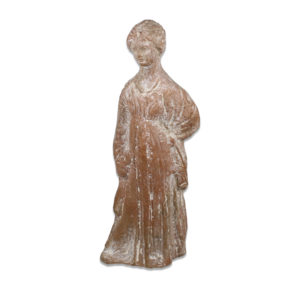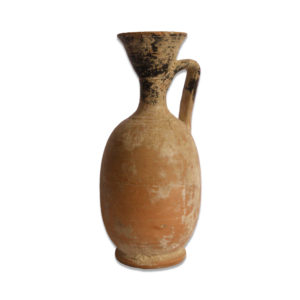Description
| ITEM | Funnel krater |
| MATERIAL | Pottery |
| CULTURE | Greek, Daunia |
| PERIOD | 4th Century B.C |
| DIMENSIONS | 265 mm x 280 mm x 315 mm |
| CONDITION | Good condition |
| PROVENANCE | Ex French private collection, South of France, acquired in 1990s |
The Daunian funnel krater is a distinctive type of ancient Greek pottery, originating from the Daunian region of southern Italy, which was inhabited by the Daunians—a people closely related to the Greeks and their cultural influences. This type of krater is characterized by its wide, funnel-shaped mouth, which is designed to facilitate the mixing of wine and water, a common practice in ancient Greek symposiums. The funnel krater, often made from local clay, exhibits the artistry and technical skill of Daunian potters, blending Greek influences with indigenous styles.
The decoration of Daunian funnel kraters often features intricate geometric patterns, stylized human figures, and mythological scenes, reflecting both local artistic traditions and Greek influences. The motifs on these kraters can include depictions of gods, heroes, and daily life, showcasing a rich blend of cultural elements. The use of these kraters in ceremonial contexts, such as feasts and rituals, highlights their importance not only as functional vessels but also as objects of artistic and cultural expression. The craftsmanship involved in creating these kraters demonstrates the advanced pottery techniques of the Daunian artisans and their ability to integrate various artistic influences.
Archaeological findings of Daunian funnel kraters, especially in tombs and ceremonial sites, provide valuable insights into the social and ritual practices of the Daunian people. These vessels were not only used for practical purposes but also served as symbols of social status and cultural identity. The presence of funnel kraters in funerary contexts suggests that they held significant ritualistic and symbolic value, possibly related to the afterlife and the honoring of the deceased.


